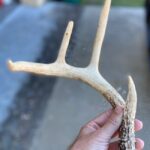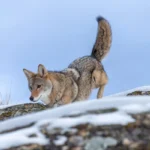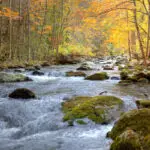There is a lot of great hunting to be done on public land. At times though, it can seem near impossible to find a spot that is all to yourself.
If you’re a public land hunter, it’s important to have a few strategies up your sleeve, such as exploring new terrain or trying to hunt in inclement weather to avoid another orange vest.
In this article, I’m going to share how I avoid other hunters on public land and still find success.
Table of Contents
How to Avoid Other Hunters on Public Land
Avoiding other public land hunters can be the difference between having a successful or your hunt completely ruined. Try focusing on rough terrain, hunting during inclement weather, and focusing on primitive weapon seasons to avoid crowds.
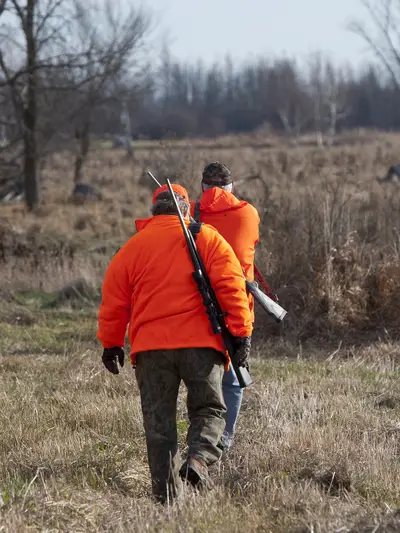
Without further ado, let’s get into some of the best tips to avoid other hunters on public land!
Explore the Area Ahead of Time
First, having a solid understanding of the area you are hunting will prove invaluable.
Not only will it improve your chances of success but it will allow you to have a plan B or C if the spot you had in mind is occupied.
Using mapping tools like Onx and Google Earth satellite imaging to scope the terrain and property boundaries. Look for possible access points away from the main parking area.
Think about where the deer or elk or other game might seek sanctuary if there is a lot of hunting pressure at popular spots.
You might even want to set up trail cameras at spots to scope the activity of a scrape, but also to see if hunters are frequenting the site. Just be sure to look up if trail cameras are allowed or restricted in your state.
Hunt Deep
One way to get away from other people is simply to go deeper into the land. A lot of people don’t have the time or don’t want to put in the effort to head far from the road or the trail.
Not only can you benefit by getting away from other hunters, but the reduced hunting pressure will mean the deer might be less excitable and more abundant.
Learn to Appreciate Difficult Terrain
Going deep into the land is a good strategy, but nowadays there are a lot of people willing to do long treks into better land. A lot of those people, though, might not be willing to head into or through the more difficult terrain.
Look for changes in elevation, marshy areas, and logistically difficult plots of land.
You can also consider heading out in a canoe or kayak to get too far out or difficult areas. The more you are willing to do what others won’t, the higher your chances of finding a great spot with no competition.
Look for Overlooked Areas
Out-maneuvering or out-gritting other hunters is one effective strategy. Another is to work smarter, not harder by looking for areas that other hunters overlook.
Say you’ve scoped out an area and identified a handful of good hunting spots, and they are all far out from the parking along the park boundaries.
Well, where are the deer going to go in response to the pressure? Perhaps they move toward the forest right next to the road; In this case, maybe you want to hunt close.
Or maybe there is a small plot of public land 50 miles from a couple of large plots of BLM land that gets busy on weekends.
Other people might not go there because it’s far or small and they think it’s not worth it. Sometimes those are the areas where you spot the most game.
Try Using Primitive Weapons
The hunting season can be short for hunters using non-primitive firearms. If you learn how to hunt with muzzleloaders or archery, you’ll have a longer season and less competition during that extended season.
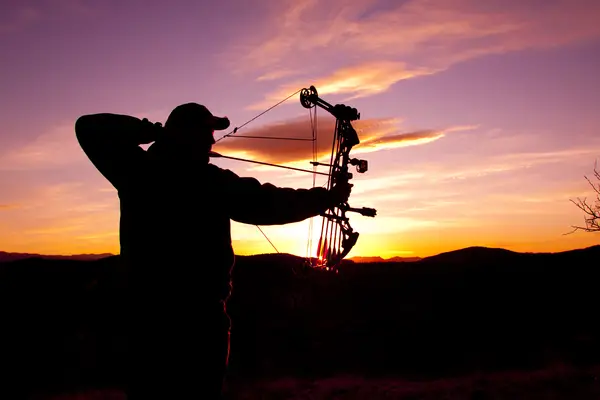
According to Bowhunter-Ed, only about 30% of hunters hunt with a bow, so during bowhunting season, you’re less likely to run into crowds. Who knows, maybe you’ll even end up preferring bowhunting.
Go Out During the Early Season
In states that have a longer hunting season, the big crowds often don’t come out until mid-season.
If you’re hunting deer, you’re less likely to encounter other hunters if you can get out in October or even September, depending on where you live.
The downside is that you won’t be hunting in peak rutting season, but you can still have a successful hunt, and you can put in useful legwork for later in the season.
Hunt When Others Can’t or Won’t
If you only go hunting on Saturday afternoons when the sun is shining, it will be hard to avoid other hunters. Success will favor the flexible when it comes to hunting.
If you can get out on weekdays during the hunting season, you’ll surely see fewer hunters than on the weekend, so take advantage of as many sick days as you can.
Similarly, the earlier you can get out, the better. Fewer hunters are willing to start their hunts before sunrise, so you might be able to be the others to the spots you scoped out.
If you’re willing to bear some rain, you’ll be rewarded with much less competition. Animals still need to eat and socialize when it’s raining.
They will be out there, so make sure you’re out there with them. All of the spots you may have scoped will be equally good, go spend a few soggy hours at each of them.
You may also like: What Time of Night are Deer Most Active?
Talk to Other Hunters When you Can
This last one is a no-brainer, but the easiest way to avoid other hunters is to know where they are going to be. The easiest way to know where they are going to be is to ask. You might even end up gaining some valuable information as a result.
Final Thoughts
With some strategies and practice, you can learn how to avoid other hunters on public land. Try to go to areas where other people won’t, go out when others can’t, and keep exploring for new places others don’t know about.
However, the nature of hunting on public land means that everyone has an equal right to be there. Encountering others comes hand-in-hand with having easier access to natural spaces.
The important thing to remember is not to get demotivated because of crowds or lack of success. Keep learning, keep trying, and maybe keep the spots you find a secret for a while.
Thanks for reading!
FAQs
Do I need a license to hunt on public land?
Yes. You will need a hunting license for the state you are hunting in. Some areas will have additional permits required by the land manager.
Can I put a tree stand on public land?
Yes, but each state will have different policies and restrictions around them.
Usually, you will have to remove it at the end of the season, and you may have to move it every few days. Remember, as well, it’s public land so any tree stand must remain available to the public.

